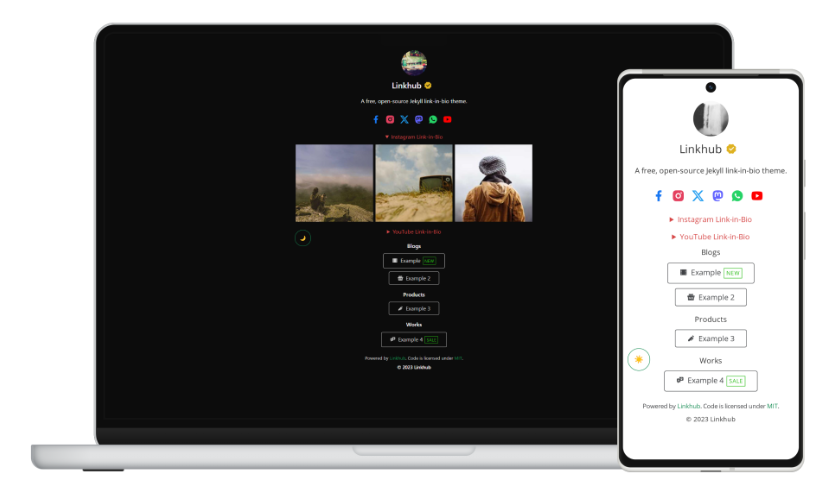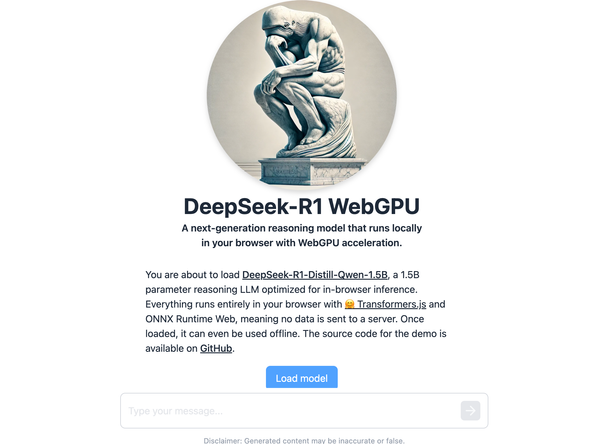16 Free Self-hosted Link-in-bio Apps (Linktree Alternatives)
Table of Content
What is Link-in-bio?
"Link-in-bio" is a term that refers to the clickable URL that users can put in their bio (short for biography) section on social media platforms. Many social media platforms, such as Instagram, only allow users to include one clickable link in their bio section. This limitation can be restrictive for individuals, businesses, or organizations that want to direct their followers to multiple destinations, such as different products, articles, or services.
Linktree is a popular tool that helps users bypass this limitation. It allows users to create a personalized landing page filled with multiple clickable links. When followers click on the single "link-in-bio", they are directed to this Linktree page where they can access multiple destinations.
The primary users of Linktree and similar "link-in-bio" tools are businesses, influencers, content creators, and any individual or organization that has a presence on social media and wants to direct their followers to multiple online destinations. They use these tools to promote products, share content, increase engagement, and direct traffic to various online platforms.
There are several reasons why you might need an open-source, self-hosted link-in-bio tool. Firstly, it gives you full control over your data and customization. This means you can manage, modify, and customize the tool to suit your specific needs. Secondly, open-source tools are typically free to use, which can be beneficial if you are on a budget. Lastly, self-hosting ensures that you are not reliant on a third party for uptime or data privacy, providing an added layer of security.
In the following list, we offer you the best open-source Linktree and Link-in-bio self-hosted alternatives.
At the end you, can read our recommendation for freelancer, companies and teams.
1. Kytelink
Kytelink is a simple, free, and open-source alternative to Linktree. It allows users to create a personalized landing page filled with clickable links. The platform is user-friendly and can be accessed by signing up through Github, Google, or Email.
Alternatively, for those familiar with code, Kytelink can be self-hosted, giving users full control over their data and customization.
The feature list of Kytelink is robust. It allows for customizable links and icons, and offers over nine beautiful themes to enhance aesthetic appeal. It includes an advanced analytic engine to track link performance, and the option to use custom domains for free.
The platform is fully self-hostable and open-source, promoting transparency and adaptability. Moreover, Kytelink is blazingly fast, utilizing Server Side Rendering (SSR) for optimal performance.
2. LinkStack
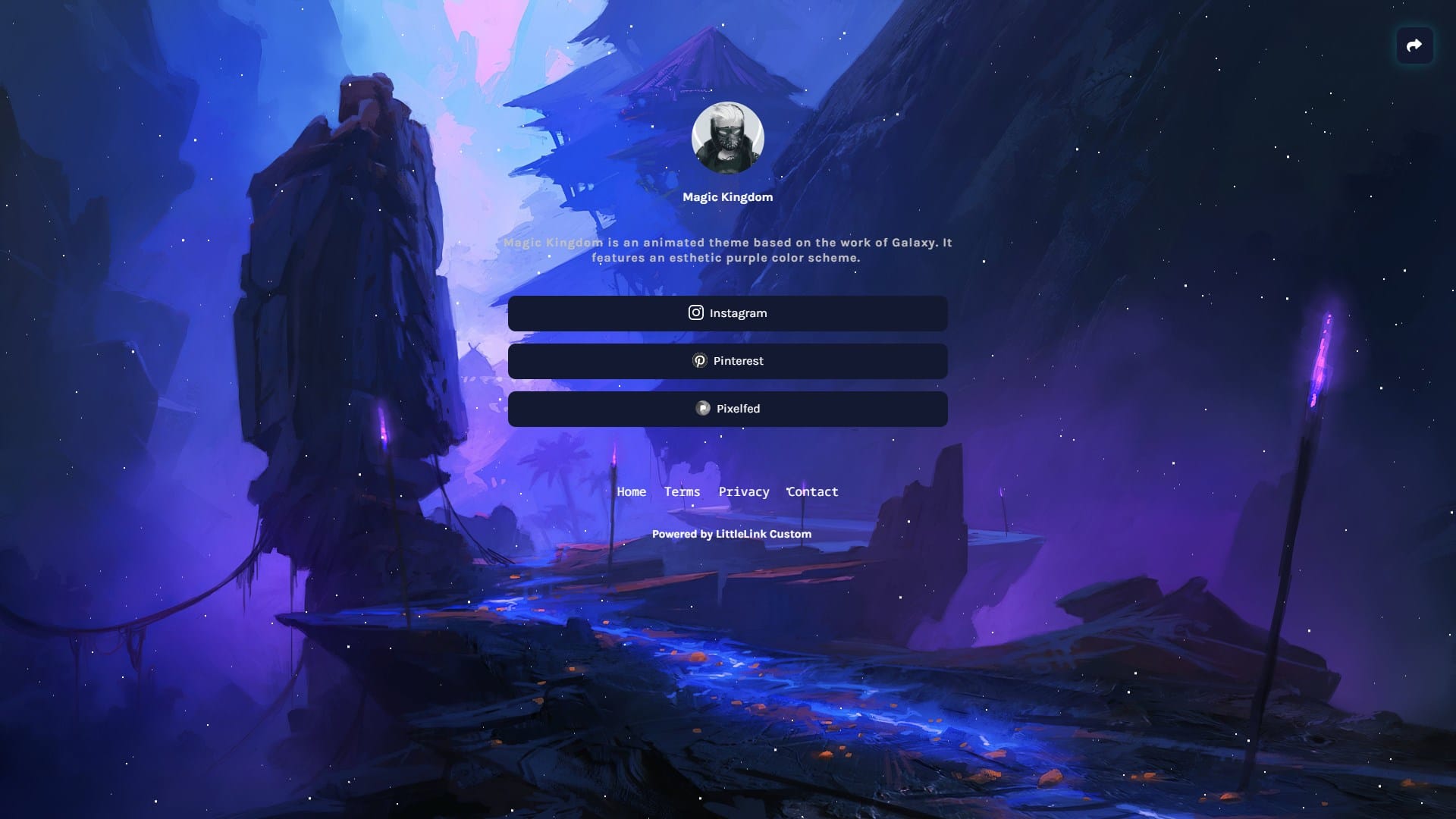
LinkStack is an open-source alternative to Linktree, offering a highly customizable and intuitive platform for link sharing. The platform tackles the one-link limitation commonly experienced on social media platforms by allowing users to host numerous links on a custom page. This way, followers can access all necessary links in one convenient location.
One of the standout features of LinkStack is its flexibility. Users can host their links on their own web server or web hosting provider, giving them complete control over their online presence. This ensures that their links are easily accessible and can be managed efficiently.
In addition to personal use, LinkStack is a useful solution for businesses and organizations that need to manage multiple links. The platform includes a user-friendly admin panel that simplifies the management and access of links created by other users. Furthermore, it allows for user registration, enabling other users to create and manage their own links.
Overall, LinkStack is an efficient and flexible link management solution that provides an alternative to mainstream platforms, prioritizing user control and accessibility.
3. LittleLinks
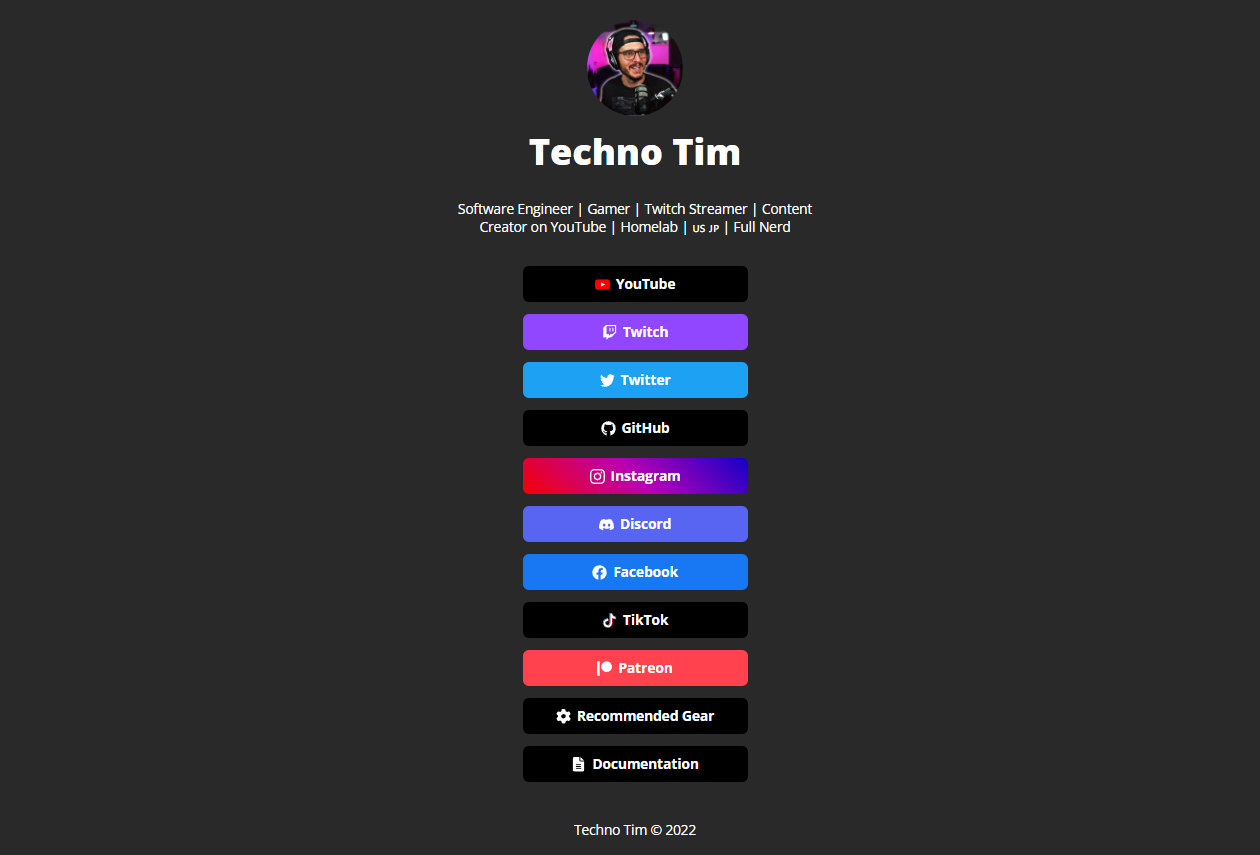
LittleLink is an open-source alternative to Linktree, enabling users to host their own landing page on any server. This lightweight application can be deployed quickly using Docker, offering a highly customizable platform primarily developed using JavaScript, Node.js, React, and Express. One of the significant advantages of LittleLink is that it doesn't require any database setup and can also be installed using Kubernetes.
LittleLink is designed to cater to a diverse user base, from freelancers and professional designers to developers, gamers, game communities, and sports clubs. However, it's essential to note that the platform doesn't support multiple links for the same category, and some customization might be required to add custom features.
The application also allows for the addition of Google Analytics or similar services like Umami and Matomo analytics through a simple configuration. Users can also set up a Health Check endpoint to monitor the health and performance of their website. Despite being an open-source counterpart to a popular service like Linktree, LittleLink maintains its unique features, making it a valuable tool for managing an online presence.
4. BioDrop
BioDrop is a community-driven, open-source platform designed for tech professionals to showcase their content and profiles. Initially known as LinkFree, BioDrop offers a single hub for users to accelerate their careers by sharing links to their social media, content, timeline, testimonials, and upcoming events they're participating in.
The platform is built with technologies including Next.js, MongoDB, and Tailwind CSS. Next.js, a server-rendered React application framework, provides the backbone of the application. MongoDB, a NoSQL database, aids in data storage and management, while Tailwind CSS, a utility-first CSS framework, supports site customization.
BioDrop is integrated with Hacktoberfest, an annual, month-long celebration of open-source software. However, it's important to note that creating, changing, or deleting your JSON profile on BioDrop does not count towards Hacktoberfest and will be marked as invalid for the event. Nonetheless, all other contributions to the project are valid for Hacktoberfest.
A notable feature of BioDrop is its commitment to the open-source community. The platform encourages new contributors to participate in the project and provides opportunities for them to contribute to open-source development. An example of a BioDrop profile can be seen at https://biodrop.io/eddiejaoude.
5. Singlelink
Singlelink is an open-source alternative to Linktree, providing a platform for users to create and manage a personalized landing page. It supports the creation of up to three personalized pages with custom domains, all for free.
The platform is built using NodeJS, Next.js, GraphQL (served via Apollo Server), and MySQL. It offers a one-click deployment with Railway, and also supports self-hosting through Vercel and Planetscale.
For local development, Singlelink requires NodeJS and MySQL. The platform offers a detailed guide on setting up the environment, installing dependencies, running DB migration scripts, and starting the development environment.
Singlelink not only allows customization of the database connection details but also permits the customization of site meta details like title, description, and OG image. It also provides an option to enable or disable Singlelink branding on your site and dashboard.
Singlelink's deployment is flexible. Beyond the one-click deployment with Railway, it can be hosted on any platform as a service host, like Heroku, DigitalOcean App Platform, or any VPS capable of installing and running both Node.JS & MySQL.
6. itsmy.fyi
itsmy.fyi is an open-source platform designed as an alternative to Linktree, empowering users to take control of their online presence. This platform allows users to create a personalized landing page where they can consolidate and manage all their important links.
itsmy.fyi is built using an array of modern technologies, including Astro, Vercel, Upstash, GitHub Issue Forms, and TailwindCSS. Astro is a front-end framework for building fast websites, Vercel is a cloud platform for static sites and Serverless Functions, and Upstash is a serverless database for modern applications. TailwindCSS is a utility-first CSS framework that allows for highly customizable designs.
The platform offers a one-click deployment feature, making it easy for users to get their personalized landing page up and running. The use of GitHub Issue Forms allows users to conveniently manage and address issues that may arise.
Overall, itsmy.fyi offers a robust and user-friendly solution for anyone looking to consolidate their online presence in a single, easy-to-manage location.
itsmy.fyi is open-source under the GNU Affero General Public License Version 3 (AGPLv3) or any later version.
7. LittleLink
LittleLink is a self-hosted alternative to LinkTree. This do-it-yourself platform has over 100 branded button styles that users can easily implement, with new additions consistently being added by the community.
LittleLink provides both light and dark themes out of the box, and users can customize these themes to their liking by updating values in the corresponding CSS files. The platform also offers an automatic adjustment feature, which adapts the theme based on the device's system settings, enhancing visual accessibility.
In terms of performance, LittleLink is designed with simplicity and minimalism in mind. It achieves excellent scores in Performance, Accessibility, Best Practices, and SEO when evaluated through tools such as Google PageSpeed Insights. The platform was built with Skeleton, a lightweight CSS framework, which aids in crafting a minimal and quick page, eliminating unnecessary bloat from larger frameworks.
Deployment of LittleLink is straightforward and doesn't require tools like gulp or npm. Users can automatically fork and deploy LittleLink with Vercel, Netlify, or Amplify. It's also possible to host LittleLink through GitHub Pages or any frontend hosting service. To edit, users only need a basic understanding of HTML to add or create their own links.
8. Link Orchard
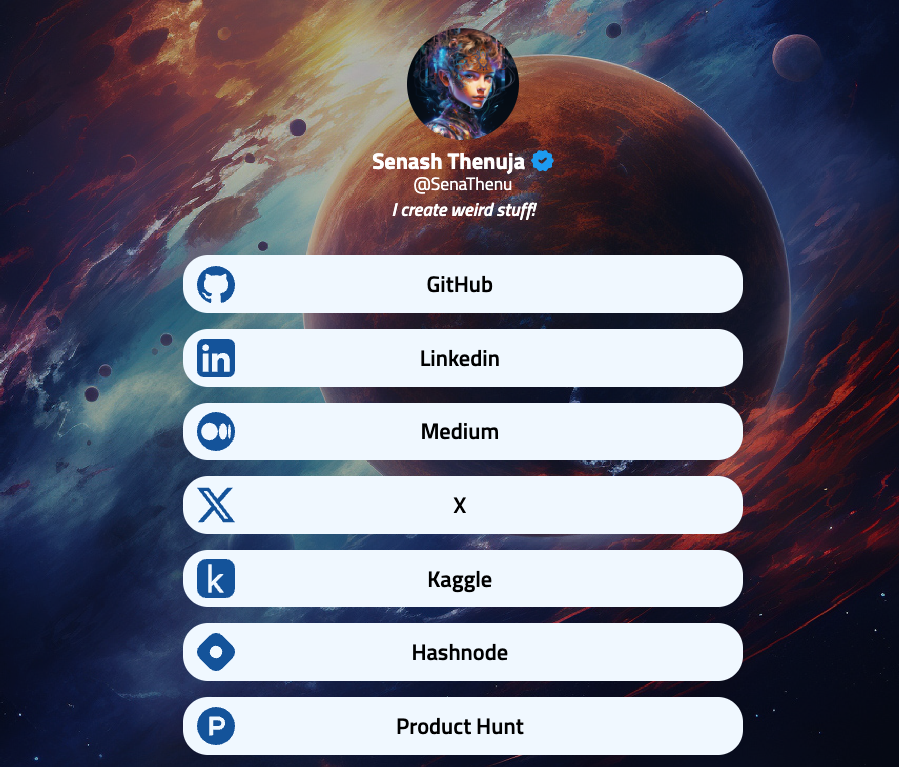
Link Orchard Rocket is a no-code, open-source alternative to Linktree that simplifies the process of organizing and sharing your links. The platform offers a variety of features including support for any link with custom link icons, a responsive layout, sleek animations, and a professional design.
It also includes a verified checkmark option and dynamically updating copyright information using your name. The setup is quick and easy, and the platform is designed to be user-friendly.
In terms of collaboration, Link Orchard Rocket encourages contributions and maintains an active list of current contributors. The platform also has a live preview available on its website, allowing users to see how their page will look. Overall, Link Orchard Rocket provides a comprehensive solution for managing and sharing your digital presence.
9. Linkees
Linkees is a beautiful single-page web application designed with React, serving as an alternative to Linktr.ee. It's designed to display all your important social links for your followers.
To use it, you first install the linkees package using the npm install --save linkees command. Then, you import the Linkees component from the linkees package in your React application.
A configuration for your links is created where each link is specified with a title, subtitle, URL, and channel type. Examples of how to set up this configuration can be found in the example-linktree/src/index.tsx.
Once set up, you can deploy your Linkees page to Vercel or any other platform. Enjoy having all your important social links in one place with Linkees!
10. Nxt Lnk
Nxt Lnk is a custom bio link platform designed for coding enthusiasts and creatives. It was initially created for personal use, but has grown into a well-rounded alternative for platforms like Linktree. It offers a variety of features, including the ability to self-host on Vercel or Netlify using your own domain.
The platform is welcoming to those with a basic understanding of coding, mainly for updating information in BioData.js and LinkData.js. For those interested in customizing the style, it uses styled components, and the template automatically supports dark mode based on system configuration.
Getting started with Nxt Lnk involves creating a new project with a template provided, followed by running the development server. Key files for editing or updating information are BioData.js and LinksData.js, and all images are stored in the public folder of the project.
Nxt Lnk offers customization options for the user avatar, title, and featured banner. The platform promotes community contributions and updates, welcoming pull requests and feature requests. It's an excellent choice for those looking to display all their important links in one organized, personalized space.
11. Linkin
Linkin is a versatile, self-hosted link tree application that is free and open-source. Prioritizing user autonomy, Linkin allows you to maintain full control over your data.
The application boasts a feature-rich dashboard that enables customization of your link tree with just a few clicks. Built using Next.js, it offers an SEO-friendly design that enhances online visibility.
Furthermore, with its support for one-click deployment using multiple cloud providers, Linkin ensures a user-friendly experience that simplifies the process of launching your custom link tree.
12. Linktree Clone
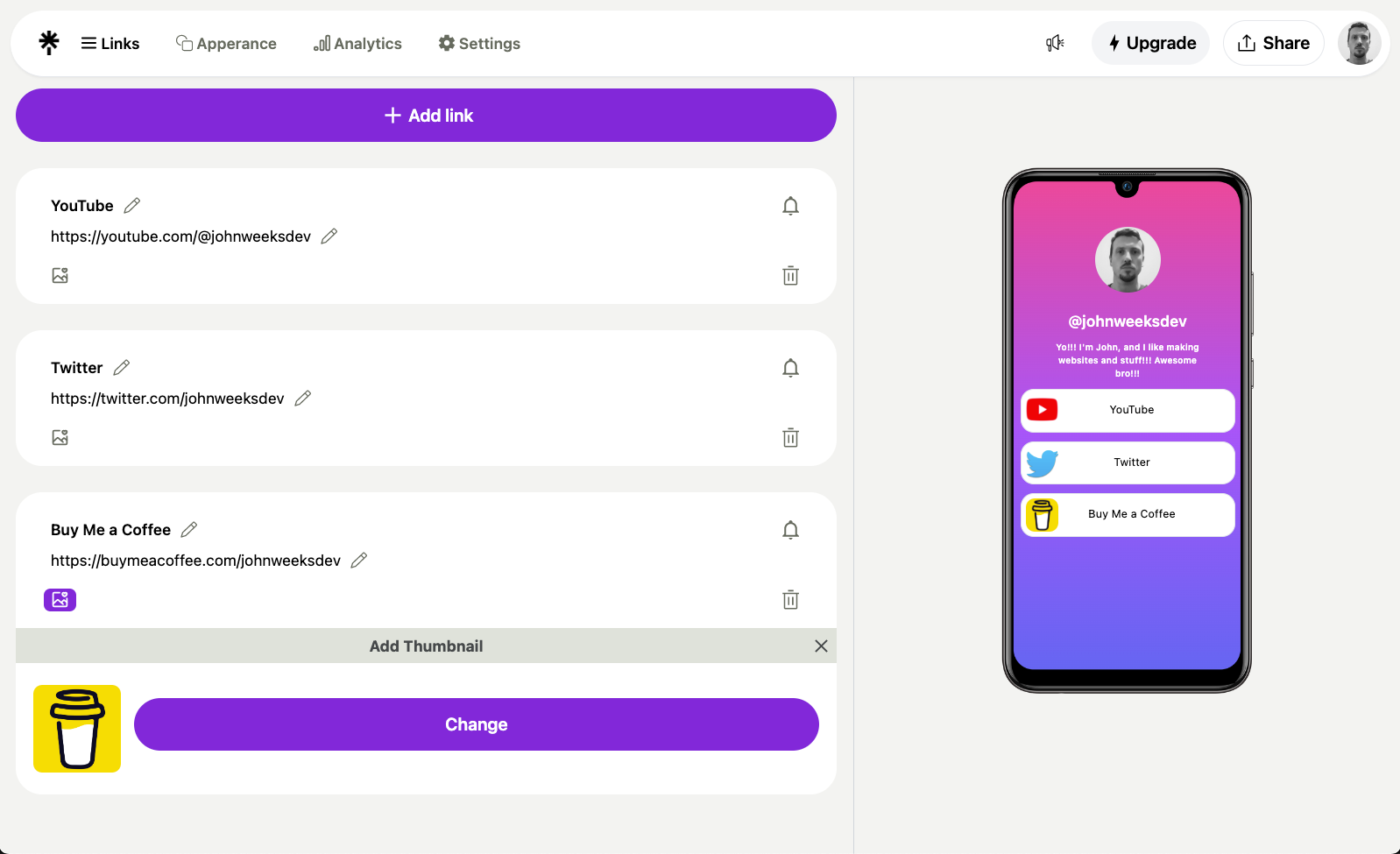
Linktree Clone is a free and open-source alternative to Linktree. Developed with Vue and JavaScript, this application is both responsive and user-friendly, boasting a streamlined setup and installation process.
Users can enjoy unlimited links, custom themes, and the ability to personalize their pages with avatars and custom images. Another key feature of this application is its analytical capabilities, allowing users to track and evaluate their page's performance effectively.
13. Gatsby Theme Link Free
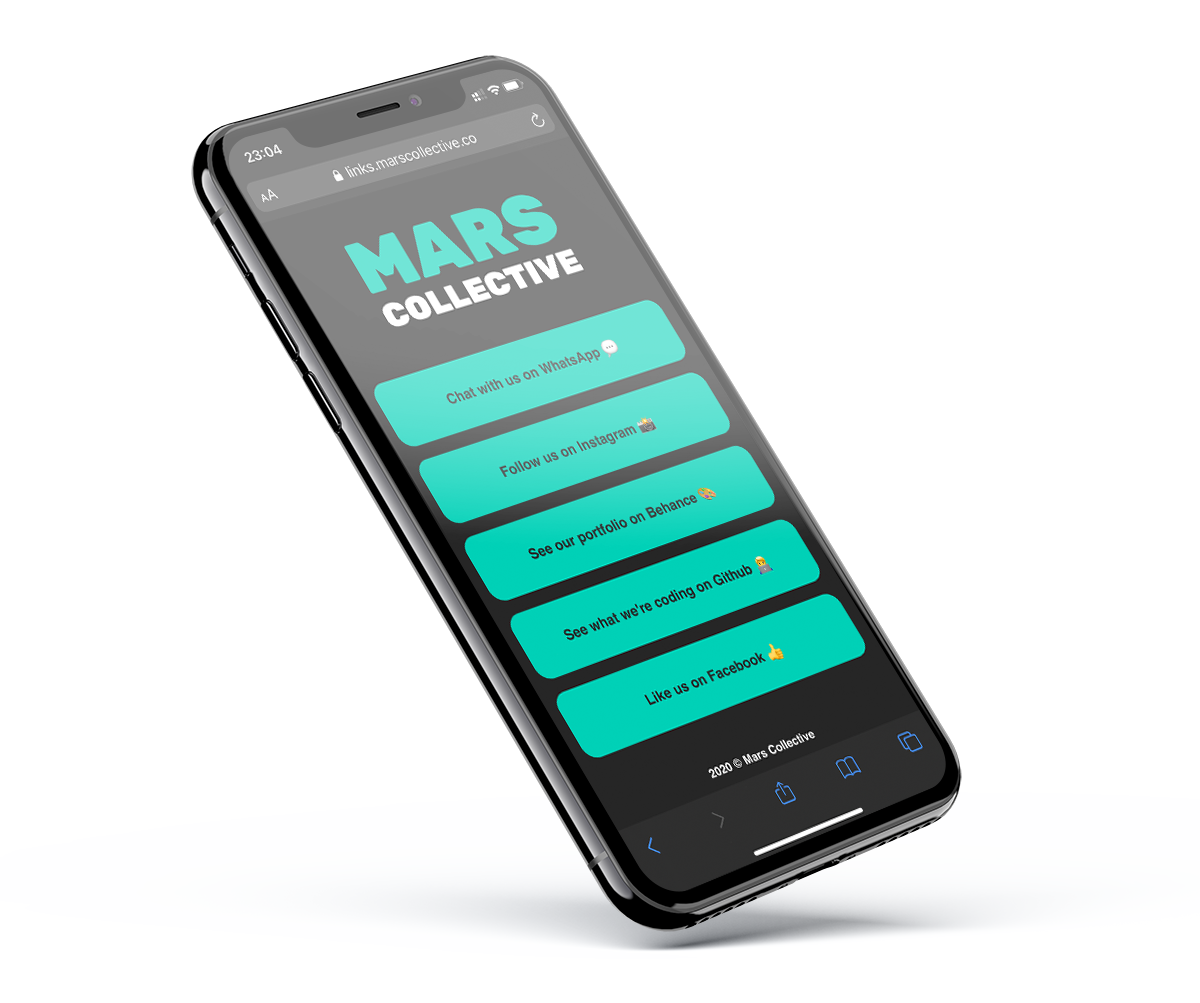
Link Free is an open-source platform that serves as an alternative to tools like Linktree. Developed by Mars, it utilizes the Jamstack architecture, combining Gatsby, React, GraphQL, Tailwind CSS, and Netlify CMS. This combination results in a fast, reliable, and highly customizable tool, hosted on the Netlify CDN.
The platform is designed to address the limitations of social networks like Instagram and TikTok, which do not support clickable links on post captions. Link Free provides users with a way to direct viewers to multiple destinations via a single profile URL. Unlike some of its competitors, which can be costly and offer limited customization options, Link Free allows for extensive personalization.
These features include the addition of a custom logo and favicon, integration with Google Analytics or Google Tag Manager, customization of buttons, background, and font colors, and adjustment of button border-radius. All changes can be previewed live as you work on them.
14. Skarf

Skarf is a self-hosted, Python-based alternative to platforms like Linktree and Beacons.ai that offers easy configuration. It provides a customizable landing page where users can aggregate their various online presences. Its functionality is demonstrated in a series of screenshots and further support is available through Discord. Notably, all Skarf builds will now be available on Docker Hub, rather than on ghcr.io.
Installation and setup of Skarf require Docker and involve creating a new directory for Skarf to store its data. Users will need to create a docker-compose.yml file with specific parameters laid out in the guide. After running the code, two new directories, static/ and config/, should appear. The config.yml file must be copied into the config/ directory and the container restarted for Skarf to configure itself.
For users wanting to utilize their own images, files can be placed into the static/ directory, accessible via the static/ URL in the config. Once the setup is complete, users can run docker-compose up -d to start the application. This makes Skarf a flexible and adaptable solution for those wanting to manage their online presence in one place.
15. Linkhub

Linkhub is a free, minimal, and impressively lightweight Jekyll theme designed for creating a single-page, link-in-bio website akin to platforms like Linktree or Later. It's based on the original Linkhub template and offers a variety of user-friendly features.
One of the standout features of Linkhub allows users to add links to various platforms such as Instagram, TikTok, and YouTube, similar to Later's link-in-bio functionality. It utilizes a modified version of the lightweight CSS framework, chota, making the entire site size around 160kb, ensuring quick load times and smooth user experience.

The platform offers a versatile dark and light mode switch, which can automatically adapt based on the user's system preference. It also provides a vast selection of free icons powered by iconify, catering to almost any purpose and enhancing the visual appeal of the page.
Linkhub goes beyond the basic functionality of storing links. It allows users to categorize their links, making the page more organized and easier to navigate for visitors.
Furthermore, Linkhub is SEO-friendly. It uses all the necessary Open Graph and Twitter Card tags for metadata, enhancing its visibility on search engines and social media platforms. This ensures that your page reaches a wider audience and improves the effectiveness of your link-in-bio strategy.
16. lynk
Lynk is an open-source, self-hosted link-in-bio application. It enables developers to conveniently set up a personalized page where they can showcase their projects and work in one easily accessible location. The platform is highly customizable, allowing users to adapt the appearance of their page to suit their individual needs and preferences.
Lynk is powered by a variety of technologies, including MDX for interactive content, Next.js for Static Site Generation (SSG) for rapid load times, next-seo for SEO enhancement, SCSS for site customization, and Typescript.
The application offers a straightforward setup process. Users simply fork the chroline/lynk template repository to create a blank slate for their Lynk instance or use degit to scaffold their project. They then clone the forked repository to their local machine, customize their instance, add content, and they're done.
Built with JAMStack technologies, Lynk instances can be deployed to a user's preferred serverless/static web host provider, such as Vercel or Netlify. This makes Lynk a versatile and user-friendly choice for developers looking to create a dynamic, custom link-in-bio page.
Our Recommendation
Here is our recommendations.
For Freelancers:
LittleLink is a great option for freelancers due to its simplicity and minimalism. It's self-hosted, easily customizable, and doesn't require tools like gulp or npm. The platform also offers over 100 branded button styles and both light and dark themes.
We also recommend themes setup over Astro, Next.js, React, or Gatsby as they can be highly customizable and can be also installed/ deployed easily on a free services like Netlify or Vercel.
For Companies:
LinkStack is recommended for businesses and organizations. It allows users to host their links on their own server or web hosting provider, giving them full control. The platform also includes a user-friendly admin panel that simplifies link management and allows for user registration.
Another good alternative for companies and agencies is Kytelink, which is seamless to use, and easy to install/ configure.
For Developers:
Developers might find Lynk particularly useful. It's an open-source, self-hosted link-in-bio application that provides a highly customizable platform. It's powered by a variety of technologies including MDX for interactive content, Next.js for rapid load times, and Typescript.
Best Overall:
BioDrop stands out as an excellent overall choice. It's a community-driven, open-source platform that offers a single hub for users to share links to their social media, content, timeline, testimonials, and upcoming events. It's also integrated with Hacktoberfest, an annual celebration of open-source software.

